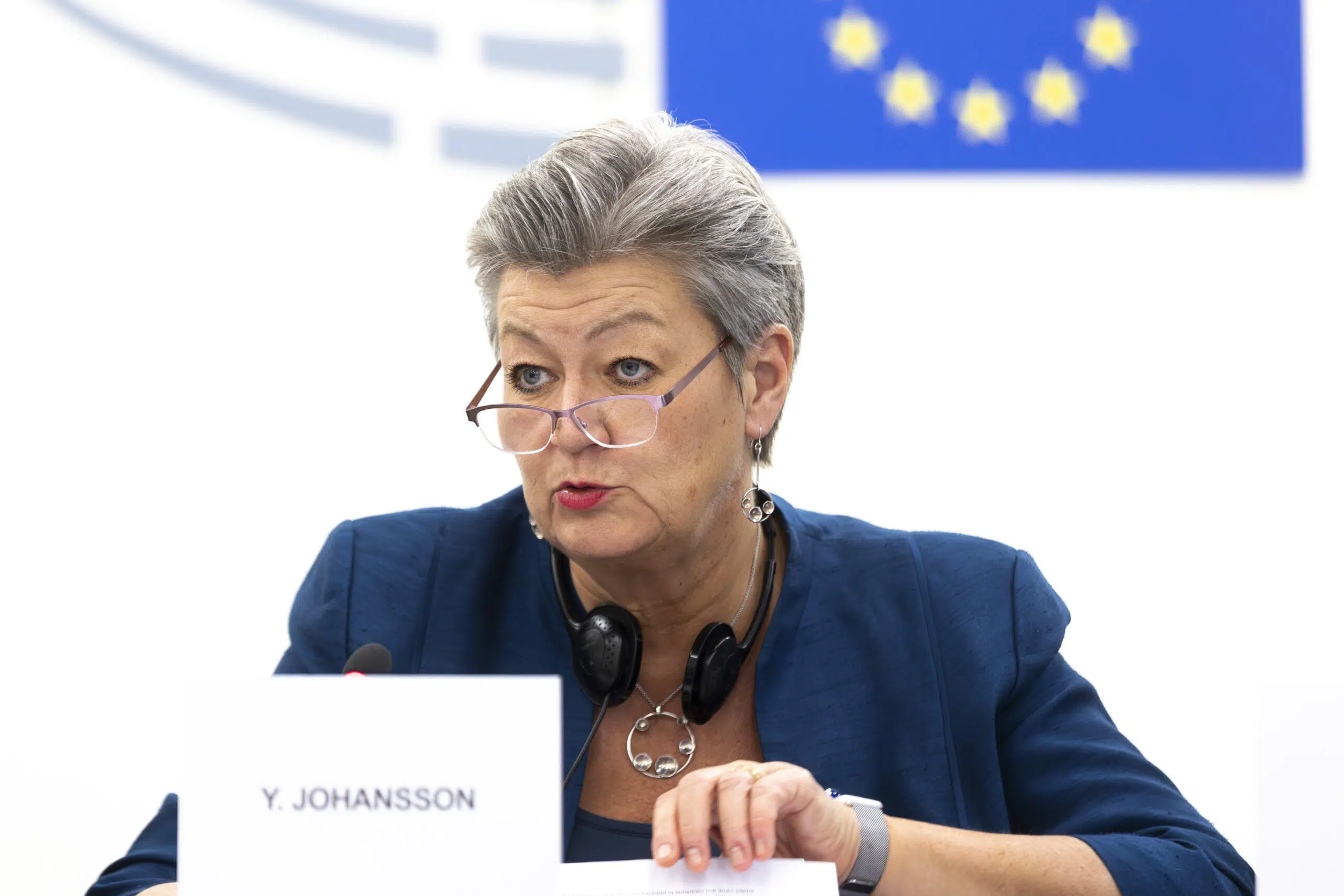Brussels – For the European Commission, the Memorandum of Understanding with Tunisia “works very well,” according to who signed the agreement, the Commissioner for Enlargement Olivér Várhelyi, and the EU Head of Home Affairs Ylva Johansson. When questioned by MEPs from the Civil Liberties Committee (LIBE), Johansson reassured the most critical people: “Our plans have zero tolerance for violations of fundamental rights.”
The data on landings in Italy coming from the Interior Ministry lend support to the EU executive, even though Johansson herself admitted that the figures in recent months “are also due to weather conditions.” Since last fall, the numbers of migrant arrivals on Italian shores have been consistently lower than the previous year: 10,277 in October 2023 (from 13,492 in 2022), 8,317 in November (9,061 in 2022), 5,237 in December (10,788 in 2022). The new year seems to confirm this trend: so far, in 2024, the Italian Ministry of the Interior recorded 1,298 arrivals, compared to 3,035 for all of January 2023.

According to the commissioner, departures from Tunisia decreased by as much as 80-90 percent since the beginning of October. Tunisian authorities have reportedly arrested 750 human traffickers and boatmen since the signing of the Memorandum on July 16. “It is extremely important to prevent these dangerous departures,” Johansson said. According to data collected by the Migrants Missing Project, at least 2498 migrants died and went missing on the Central Mediterranean route in 2023. After a peak of 729 victims in June, only 665 went missing in the second half of the year, and 75 in January 2024.
EU Commission rejects allegations of human rights violations in Tunisia
However, the EU-Tunisia Memorandum does not necessarily mark a victory even if the intensified activity by the Tunisian authorities has improved coastal control, also thanks to bad weather conditions. Hussein Baoumi, regional head for Amnesty International, also attended the Libe Commission hearing and denounced the “continuous mass expulsions” carried out by the government of Kais Saied, which “always follow the same pattern.” The one already widely documented last summer that involved the loading onto buses of hundreds of sub-Saharan migrants in Sfax – the main departure point for Europe – and abandoning them in the desert on the border with Libya.
In addition, Amnesty International warned, “Tunisian police are extremely corrupt” and “also take money from those who work with traffickers”. But Johansson disagrees and attributes the decrease in departures not related to desert deportations but to the fight of the Tunisian coast guard and police against traffickers. “Tunisia is increasingly a transit country and is not equipped to handle the situation. It takes time to build capacity,” the commissioner explained, referring to the conditions of migrants stranded on the shores of the North African country.
According to data cited by Johansson, there has been a 600 percent increase in asylum seekers in Tunisia in recent years. With the Memorandum of Understanding and through cooperation with the World Organization for Migration (IOM) and the United Nations High Commissioner for Refugees (UNHCR), the EU is trying to strengthen an asylum system that never existed. The European Commission rejects claims that it is funding projects that violate human rights in Tunisia. “EU funds for Tunisia related to migration do not go ‘to friends of friends,’ they go to international organizations,” Johansson said, referring to the IOM, UNHCR, and the Tunisian Red Cross. “There is monitoring and evaluation on the use of the funds. I am ready to explore further mechanisms to ensure that human rights violators do not use our funds,” she promised.
Although there are still several critical issues on the implementation of the five pillars of the Memorandum with Tunisia – which includes the migration management chapter in a “comprehensive and inclusive partnership” – Johansson confirmed that the EU is “close to an agreement on a joint declaration with Egypt,” the precursor to a new Memorandum of Understanding modeled along the one with Tunisia. A memorandum that will have to respond to other challenges because Egypt “is not a transit country.” There are over 9 million migrant people in Egypt today.
English version by the Translation Service of Withub




